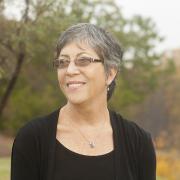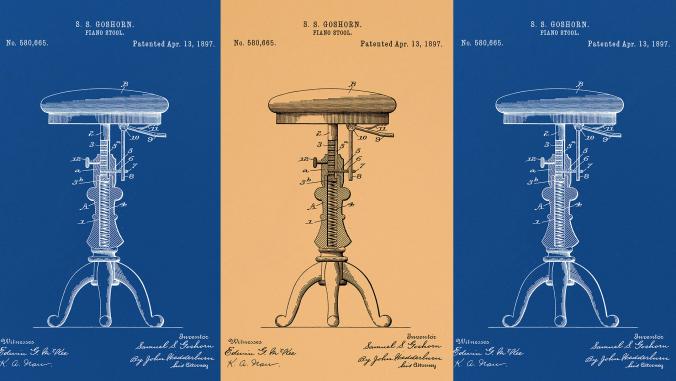Speaking of climate change: A CSO's guide
How do you talk about climate with others? Start with some kindergarten basics.

As sustainability professionals, we learn quickly how to adjust our messages to the broad variety of audiences we engage. Fortunately, we have gotten to the point where the best strategy to discuss climate change is usually to treat it as the fact it is, discussing it with the confidence with which we approach the laws of gravity or the risks of smoking.
But I’ve had my share of moments when that was not the best approach. Though rare, there were encounters with the occasional employee or customer who was quite vocal about his disdain for those who preach climate action. Even when speaking with those who are worried, I’ve learned that we need to think about how to spur them to action rather than despair.
There are some fabulous resources for guidance on how to talk about climate change, and they’ve been my sources of ideas, techniques and rationale. The most notable is probably the Yale Program on Climate Change Conversation, the same folks that brought us the Global Warming’s Six Americas and keep us up-to-date on the pulse of public opinion in this country.
There’s also Andy Hoffman’s excellent book "How Culture Shapes the Climate Change Debate," which offers a framework that I’ve found relevant for nearly any controversial topic. There’s the training I’ve been lucky enough to receive on personal storytelling provided by the Climate Reality Leadership Corps. I’ve immersed myself in these and many more.
But just as with public speaking and presentations, it can’t all be learned by reading. I’ve tried to take in advice from the experts, experiment, practice and make it my own. These are the things that I have found work best for me.
I try to figure out where those with whom I’m speaking are on the climate sentiment spectrum. Okay, this is public speaking 101: Know your audience. And it is truly a listening skill, rather than a speaking one.
The range of worldviews I’ve encountered run from those at the extreme end of denial (the liberal-academic-elite conspiracy theorists), through those who believe it’s happening but not human-caused, those who buy that it’s anthropogenic but believe it’s not harmful, and those who see the problem but don’t believe we can afford to act — all the way to those who thoroughly believe in the threat but have lost hope to the point that they don’t see any point in action.
I sometimes suss out where they are indirectly through conversation, sometimes with, "What are your concerns about climate change?"
For those at the extreme denial end, I won’t directly raise the topic of "climate change" per se. Yet I was pleasantly surprised to discover that the first adamant denier who I did engage was a real believer in the importance of sustainability in everything, from how to feed the world to protecting workers to avoiding pollution. So, I try to swallow my desire to argue and move on to constructive discussions about those topics that, while usually exacerbated (a lot) by climate change, also have other causes, such as extreme weather events or tropical disease migration.
I love factoids, but my experience is consistent with every study’s results: Bombarding people with facts will not change their minds. The smarter someone is, the better she is at constructing an alternative narrative to account for undesirable data. On the other hand, if you can get her to figure it out for herself through her own research, you may find a change down the road. So, I save the factoids for people who are asking for them.I love factoids, but my experience is consistent with every study’s results: Bombarding people with facts will not change their minds.
One stat that we hear repeatedly is that 97 percent of climate experts agree on human-caused global warming. I’ve had that statistic fall absolutely flat in the face of deep skepticism over academic publishing, citing concerns from peer pressure to absolutely skullduggery.
Running list
What has worked for me is to demonstrate how the impacts of climate change are being seen not just by climate experts, but by scientists (and others) across a wide range of disciplines.
I keep a running list of examples — everything from marine biologists seeing thinning of pteropod shells due to ocean acidification, to ornithologists seeing mismatch between bird migrations and plant flowering, to geologists seeing "river theft" by glaciers, to real estate agents coping with "climate gentrification." I tried it successfully for the first time with a young man who was a skeptic, but not a denier (he just didn’t know what, or whom, to believe) and he found the breadth of fields impacted compelling.
Years ago, I heard a lecture by Robert Cialdini, an expert on psychology and marketing, that profoundly influenced my strategy. He talked about the credibility attached to "authorities," and how local the definition of "authority" is. His quintessential example was when Ronald Reagan, in a 1980 debate with Jimmy Carter, said "Ask yourself, ‘Are you better off than you were four years ago?’" Reagan was deferring to the ultimate local authority: oneself.
I used this a lot when preparing to speak with executives (and not just on climate) by finding quotes from people they admired or at least were in some way similar to them.
There are also those who are closet believers but have political pressure to stay mum. I had the privilege of being in a discussion with a conservative Republican lobbyist last year. His advice was to avoid predictions couched as definitive statements, which invite eye-rolling, and instead to use risk to frame the conversation. People who govern, whether it be a state or a company, may find it politically expedient to avoid talking about climate change, but they do understand their roles in managing risk.People who govern, whether it be a state or a company, may find it politically expedient to avoid talking about climate change, but they do understand their roles in managing risk.
I’ve found that focusing on predictions also can lead to arguments over the validity of modeling, accusations of fear-mongering (not always entirely unwarranted) and deflections to past predictions that have not come true, among others. Instead, I focus on observations and trends that have been established. And if I can find observations that are near and dear to the audience, so much the better.
Sometimes, I try to explain what the 2 degrees Celsius threshold means, particularly to those who are worried about climate change. I explained to a group of retirees (voters!) last week that climate change is not a tennis match that ends at a particular score. If we keep it under 2 degrees Celsius, we don’t get to claim victory and go home; extreme events are happening with increasing frequency, and the lower the greenhouse gas load, the less frequent they will be.
Likewise, if we go over 2 degrees Celsius, it’s not game over; reducing atmospheric concentrations reduces the incidence of extreme outcomes and, no matter how bad it could get, we need to prevent it from getting worse.
Getting personal
Last, but absolutely not least, is the application of one kindergarten lesson that never gets old: using "I statements." At Climate Reality Training, they teach us not to lecture people about why they are wrong. It seems obvious that they’ll hear your words to mean "You’re stupid" — clearly not a route to mutual understanding. Hard as it is to resist, better to tell them your own personal story: How climate change is affecting you as an individual, why you feel the need to act, what created your sense of urgency.
In one of my first encounters with a skeptic, I was confronted with a wall of denial about every scientific fact. He felt that the human race was too puny to influence the entire planet. But I made a dent in his armor when I stood looking out the wide landscape in front of us and said how sad it was that I couldn’t see a single square inch that hadn’t been transformed by humans (of whom, I may have mentioned, there are nearly three times as many as when I was born, which wasn’t that long ago). He stood and looked out with me and said, "You may have a point…."
I’ve spoken to others about those amazing, clear sub-zero winter days that happened multiple times every single year when I was a kid but are now considered weird anomalies.The most important audience for my stories is me, because hearing them again, especially in the face of so much disheartening news these days, reminds me of why I’m not giving up.
I tell the story of how I came to realize the importance of talking about humanity rather than "saving the planet" after interviewing conservatives. I sincerely have to fight back the tears when I talk about beautiful reefs that I’d seen when I started diving, that are now dead and covered with algae. And how even 200 miles off the coast of Australia, we saw the scars of civilization in the sea.
Talking of my own experiences and feelings is effective with any audience, really. Those who are on the same page will respond with their own powerful stories. The responses of others provide insights into their mindsets and help determine where to take the discussion.
But the most important audience for my stories is me, because hearing them again, especially in the face of so much disheartening news these days, reminds me of why I’m not giving up. And hearing your story helps reaffirm my belief in our power to effect change. Together.





